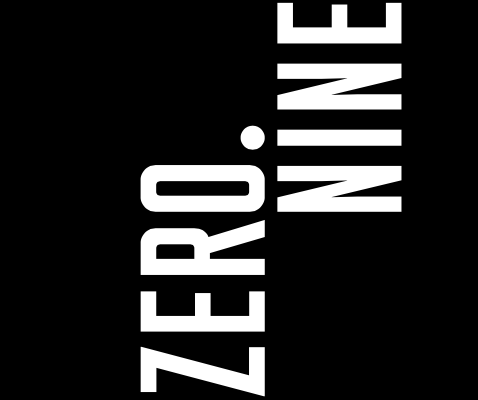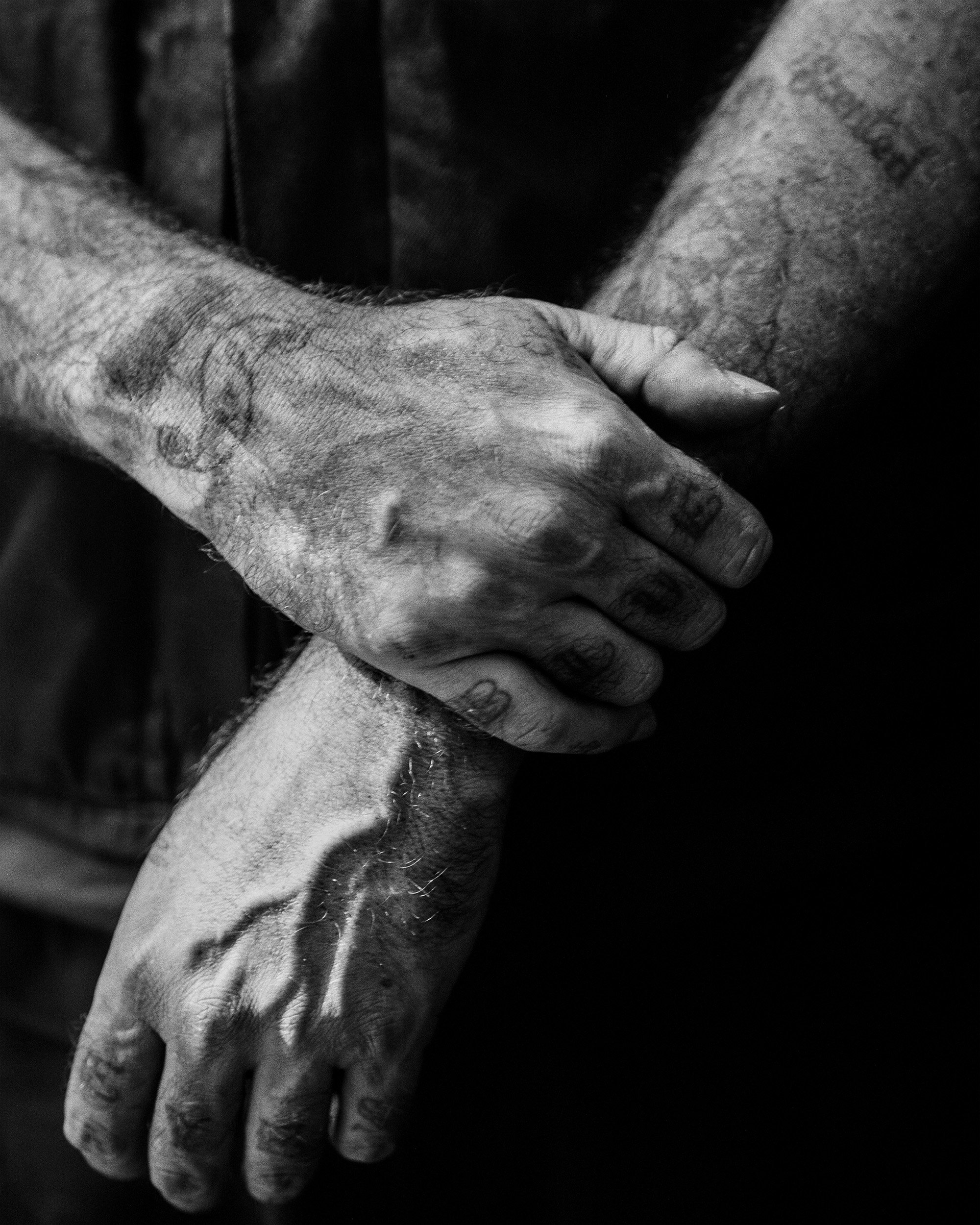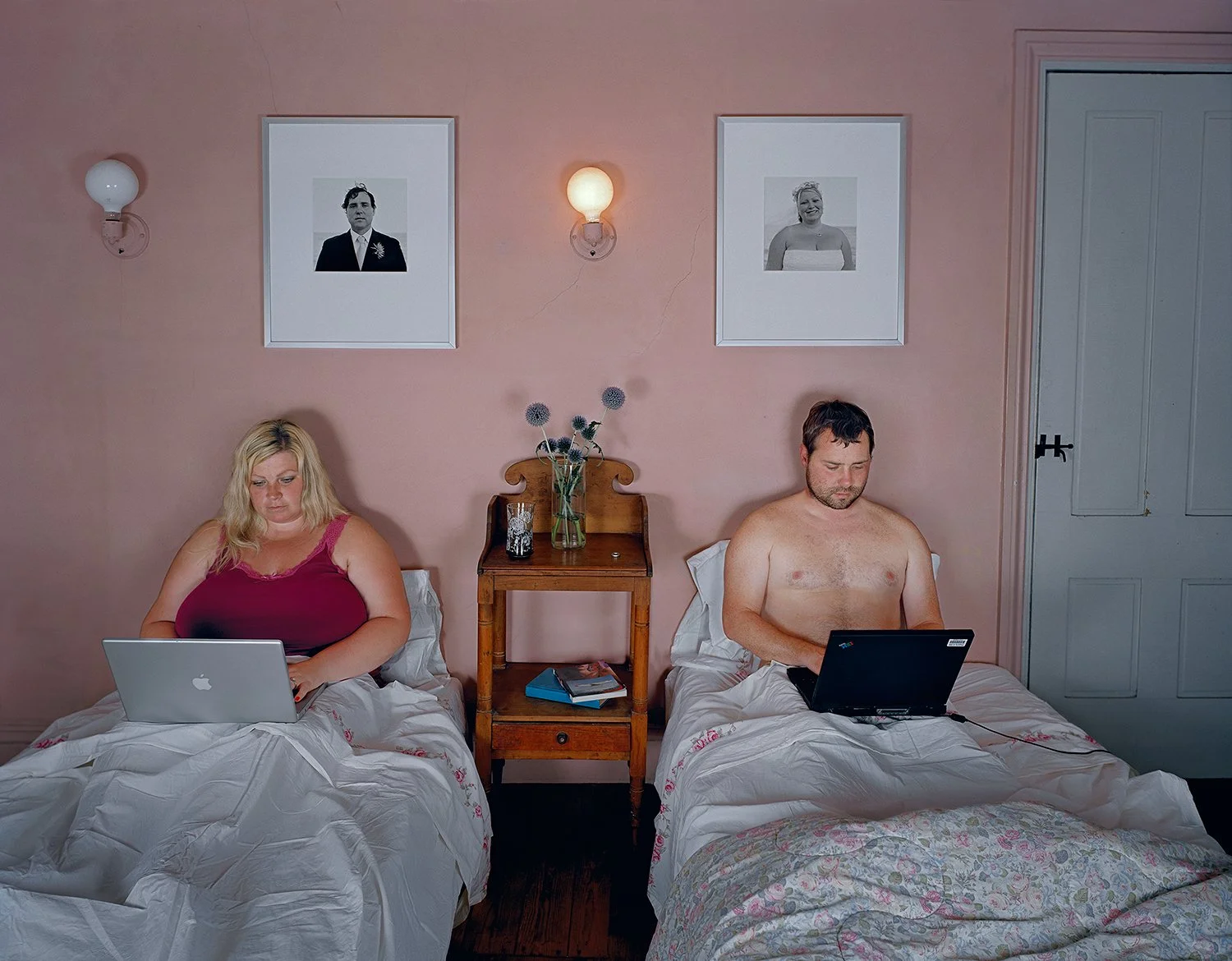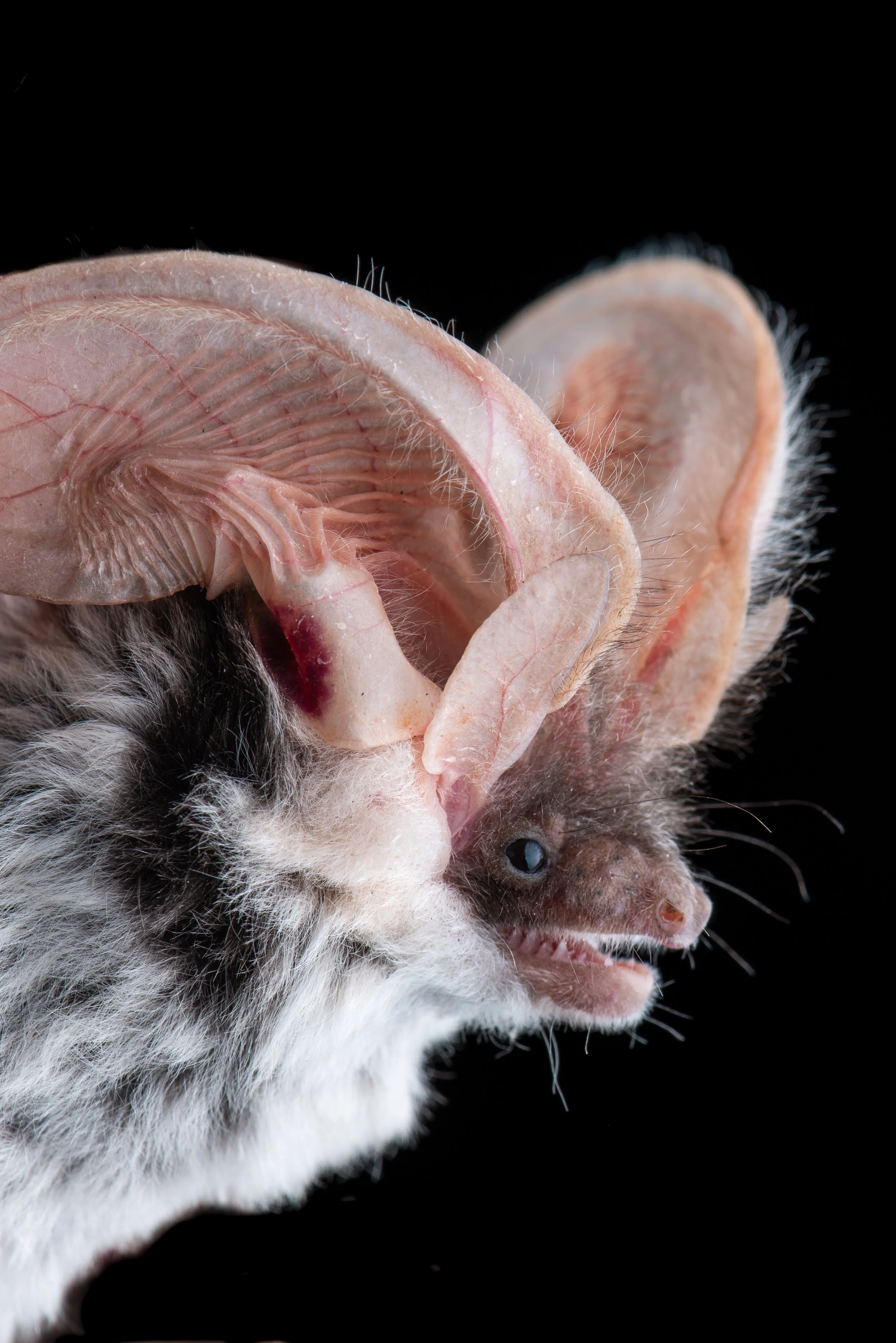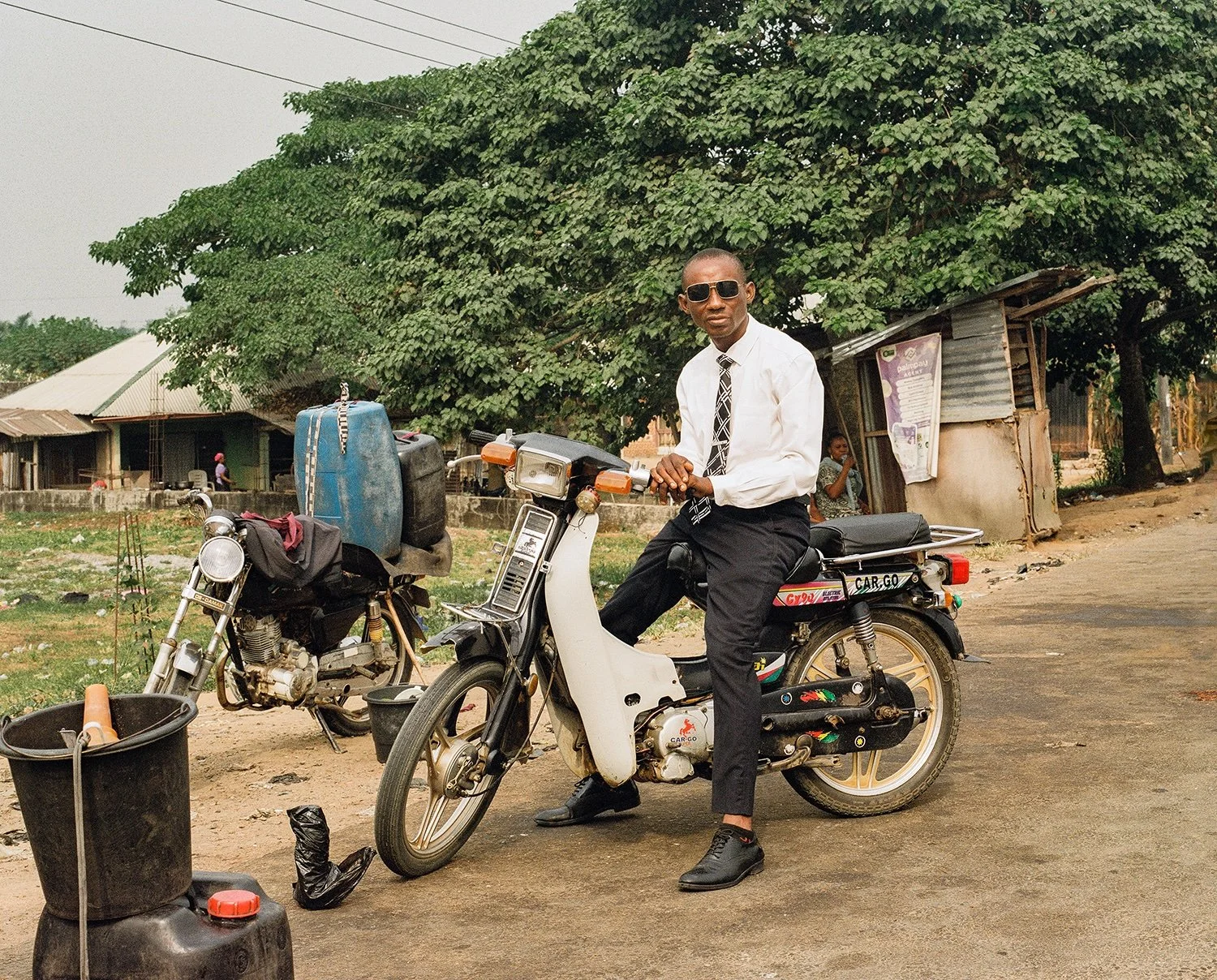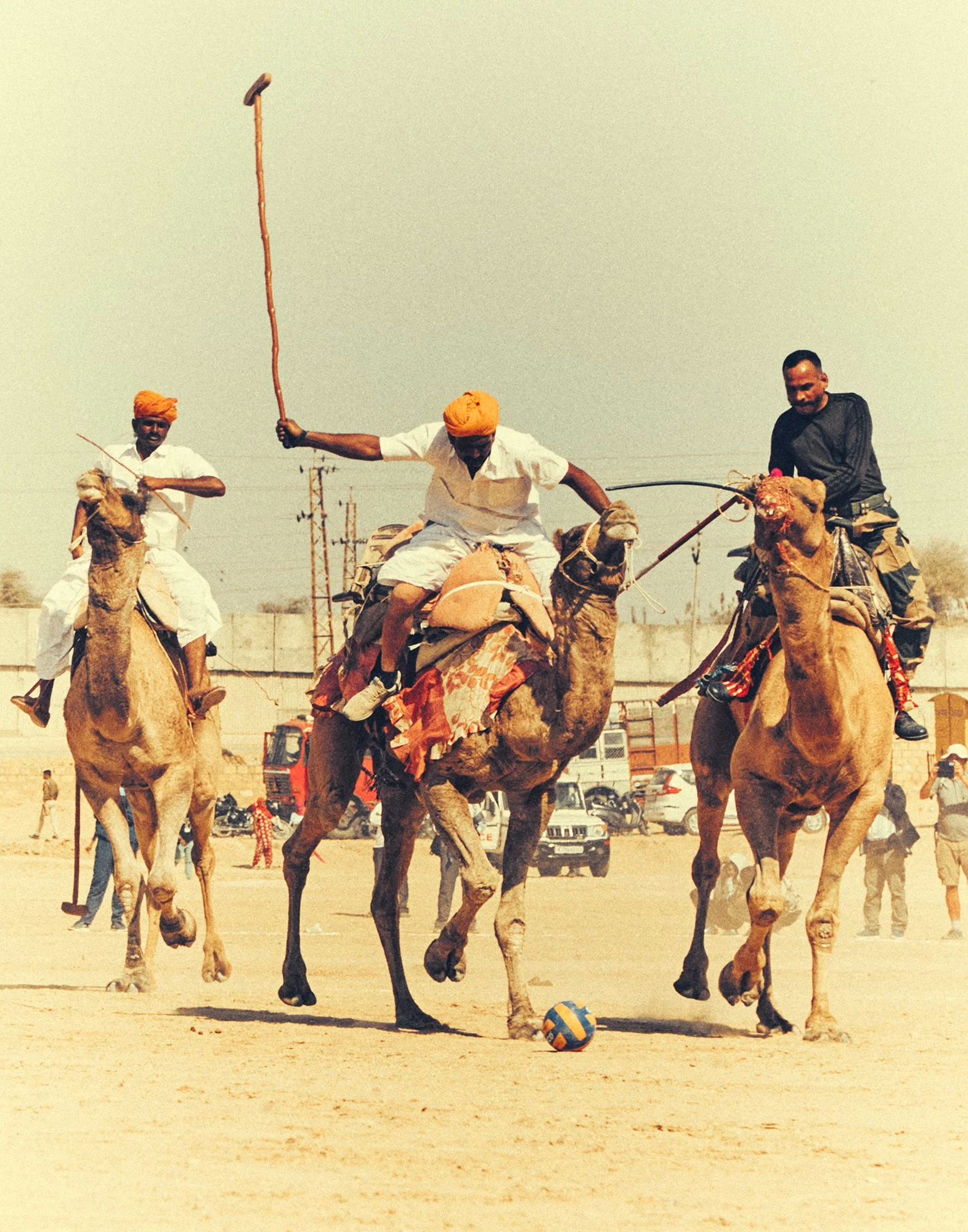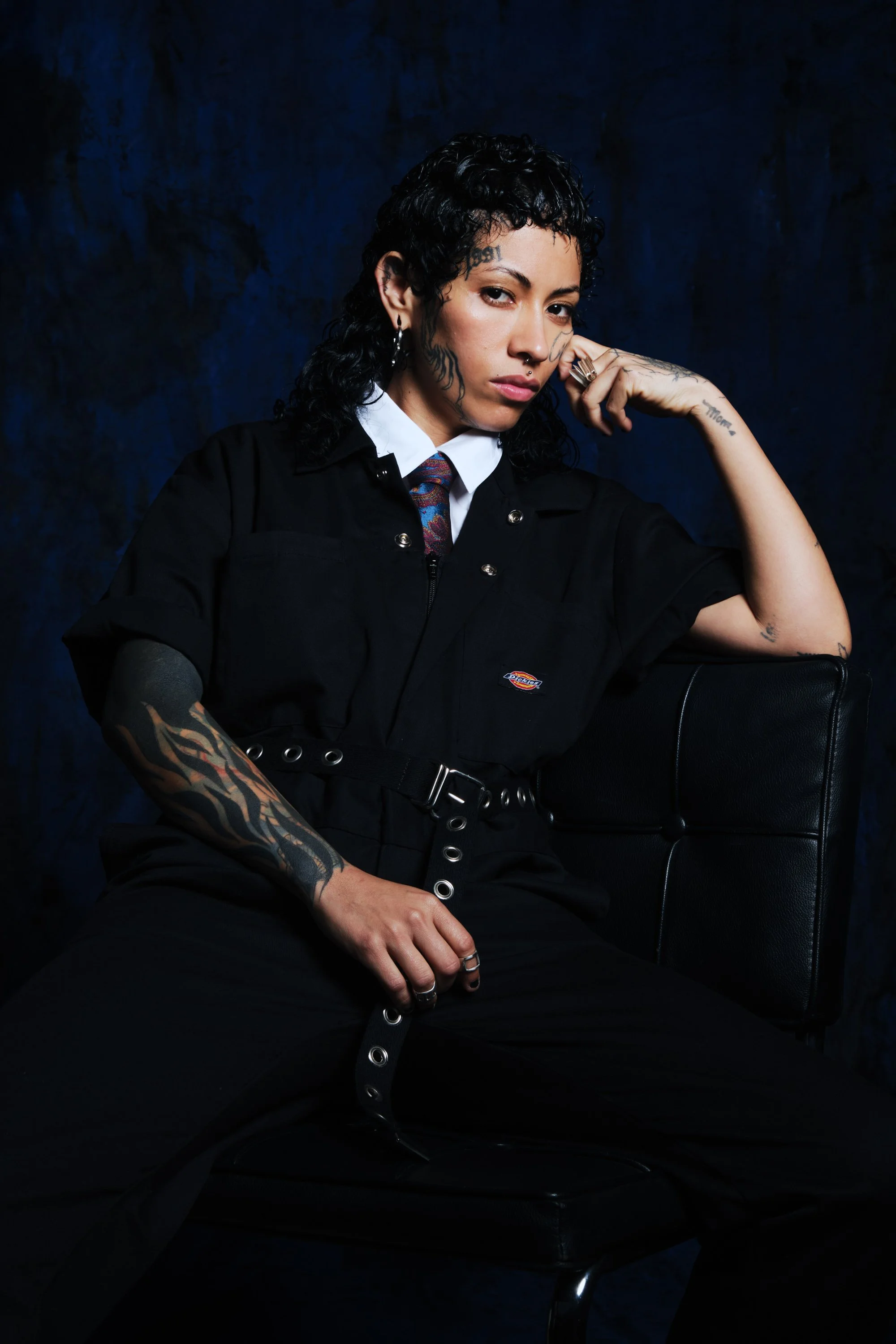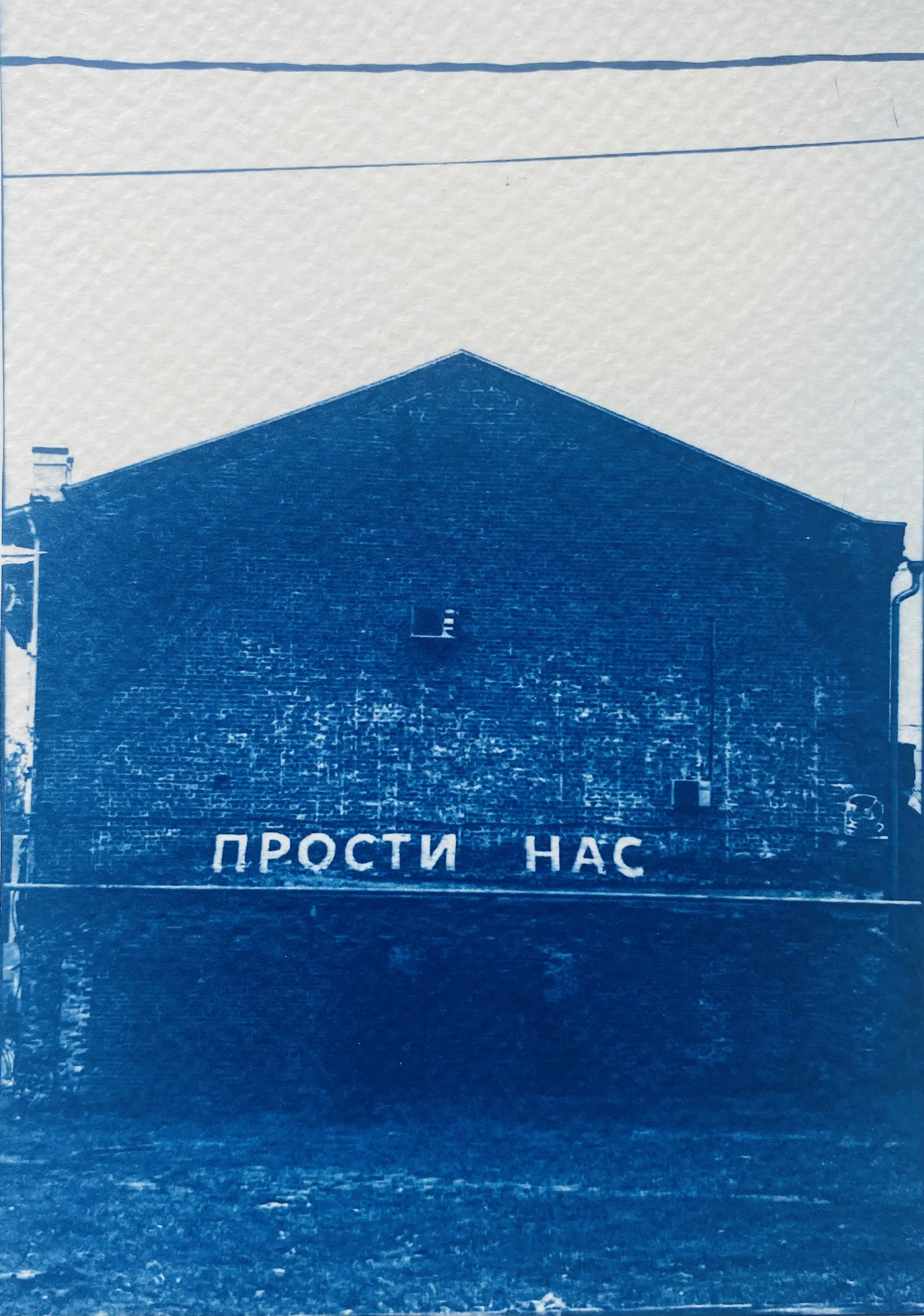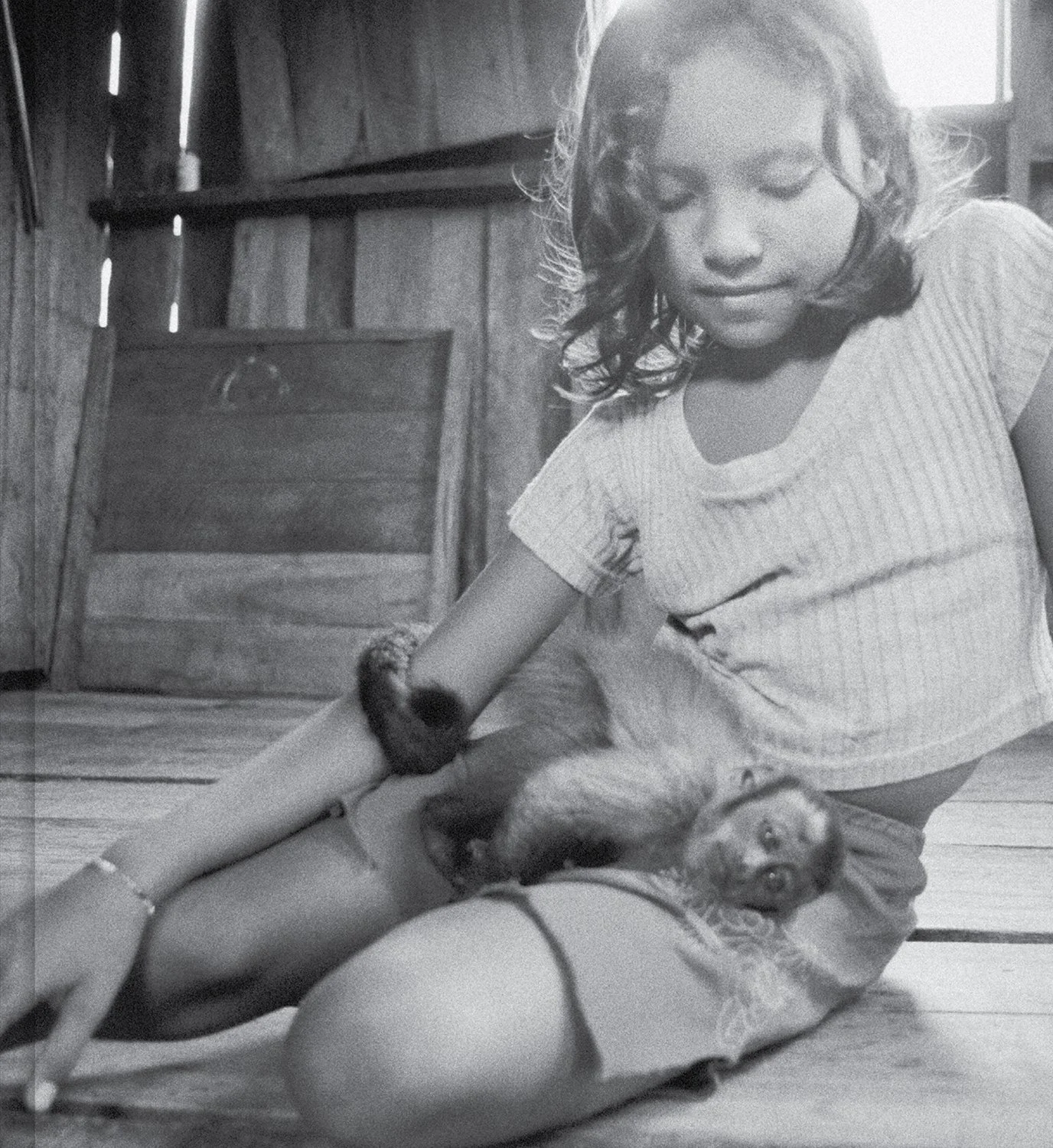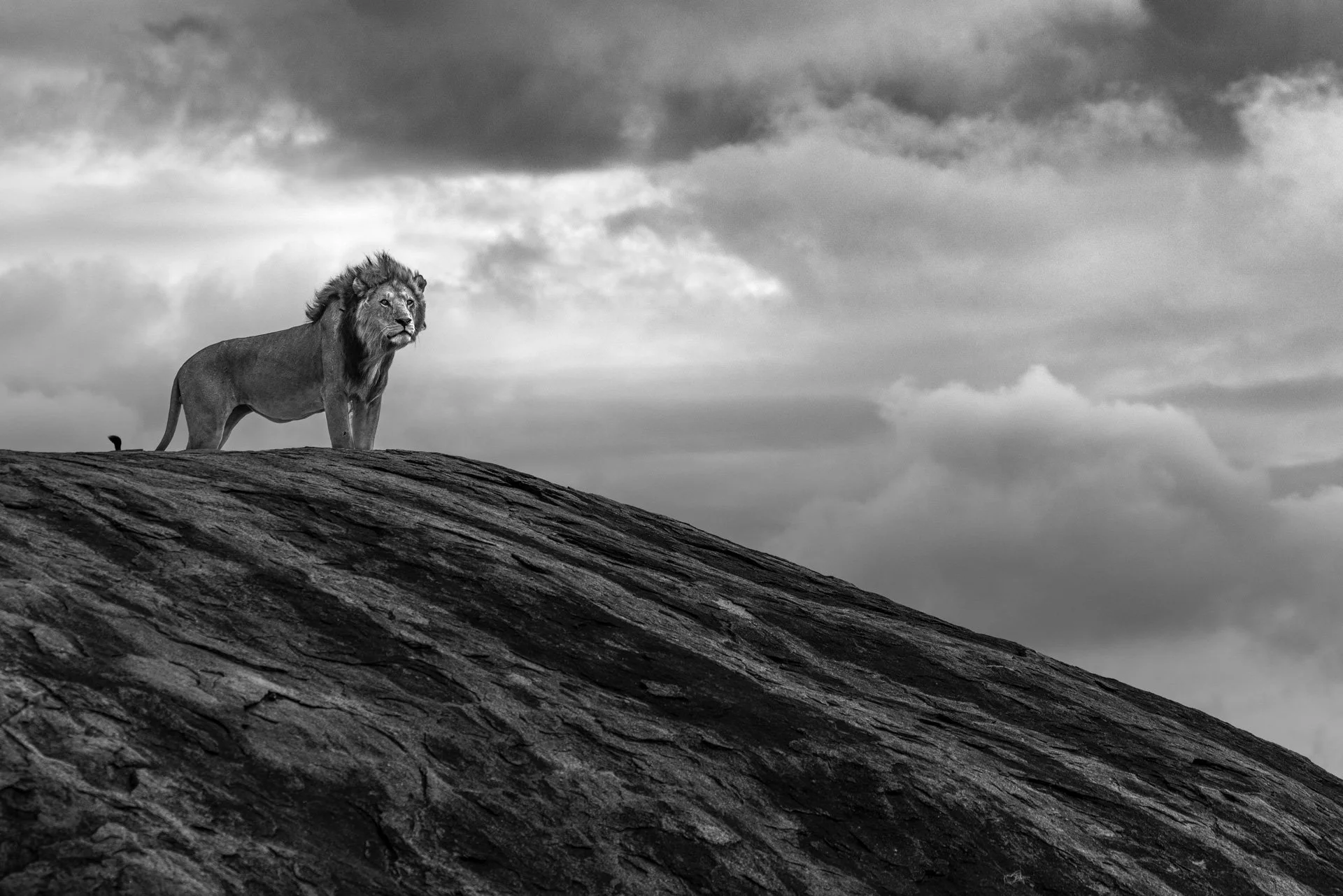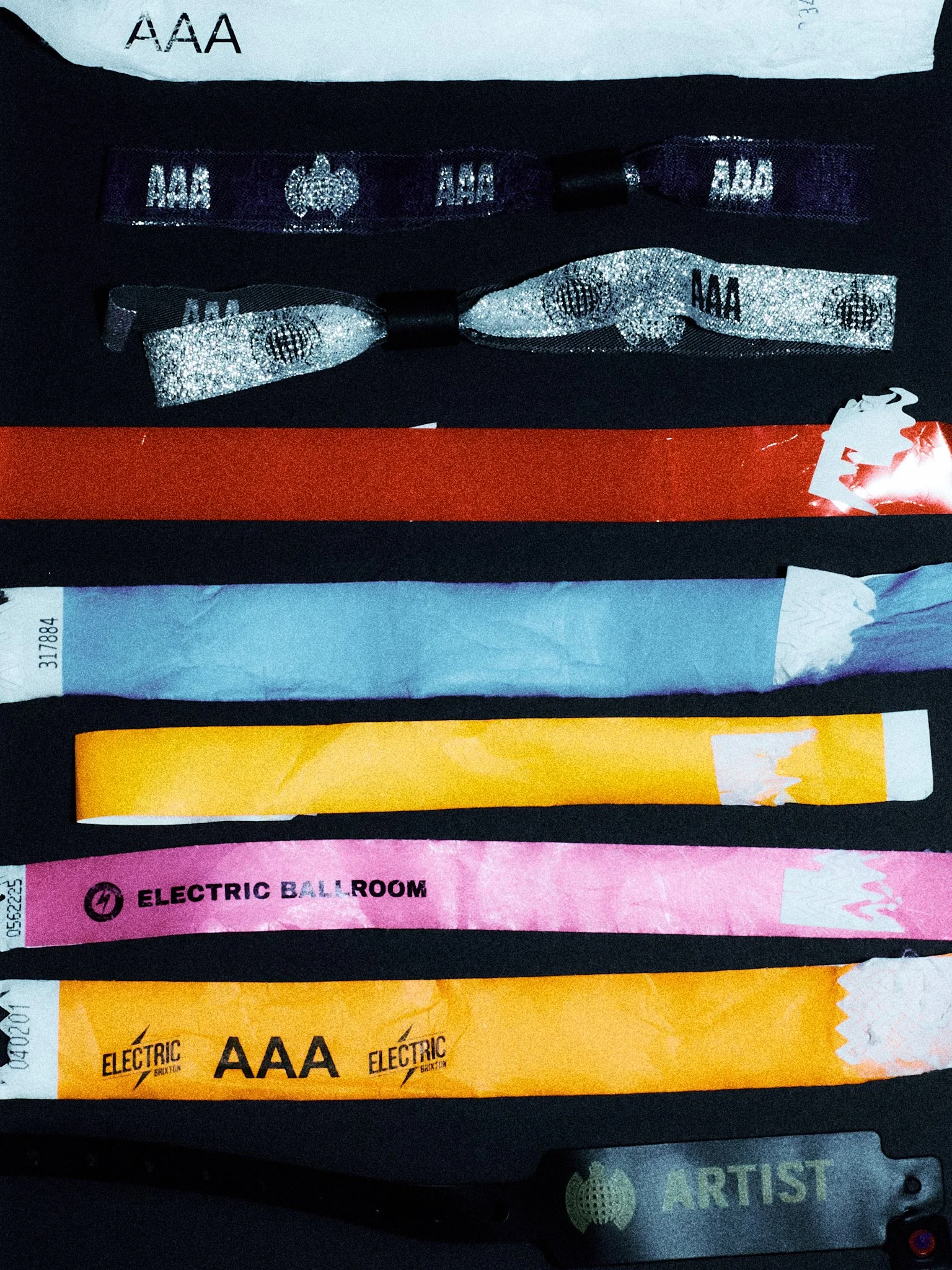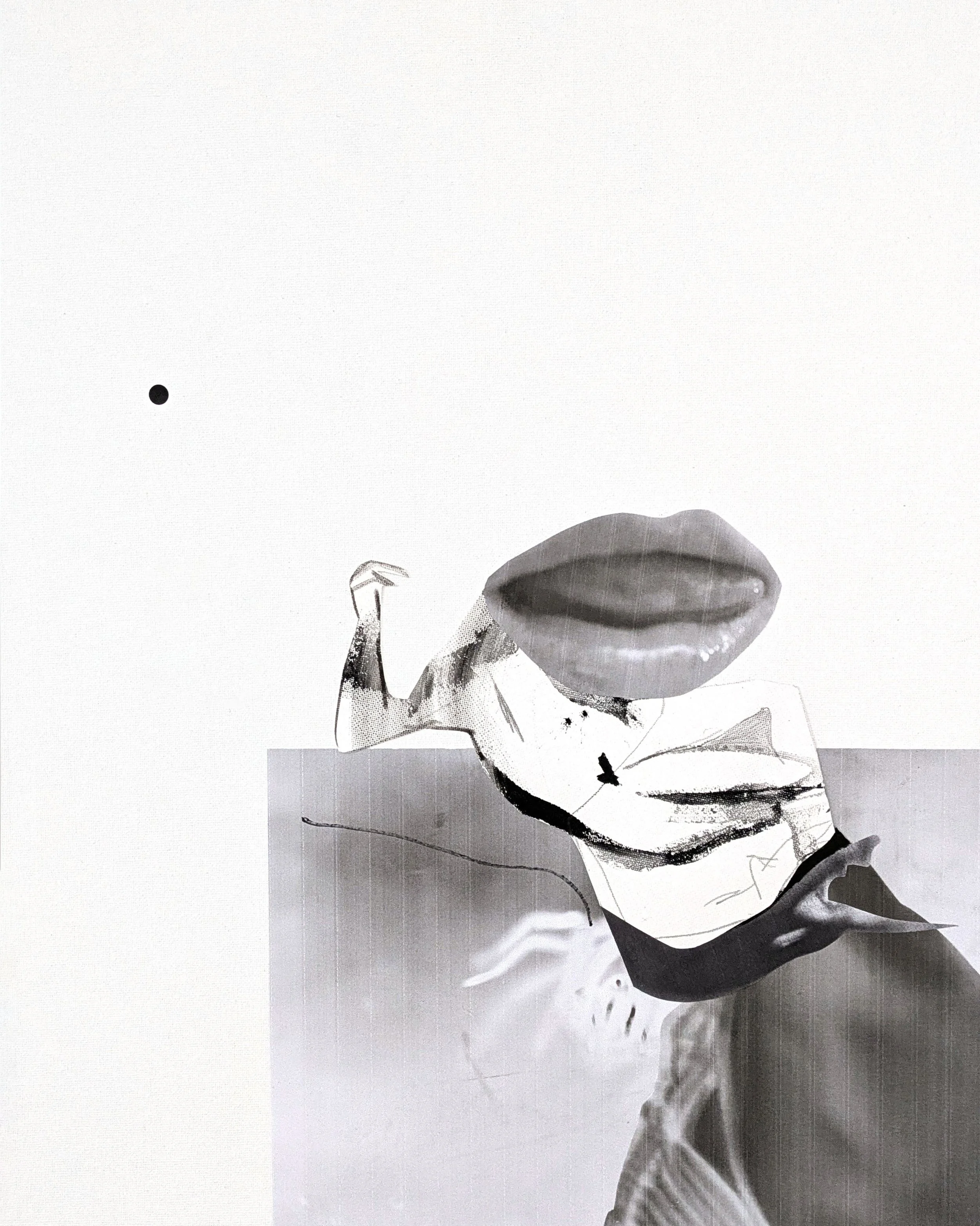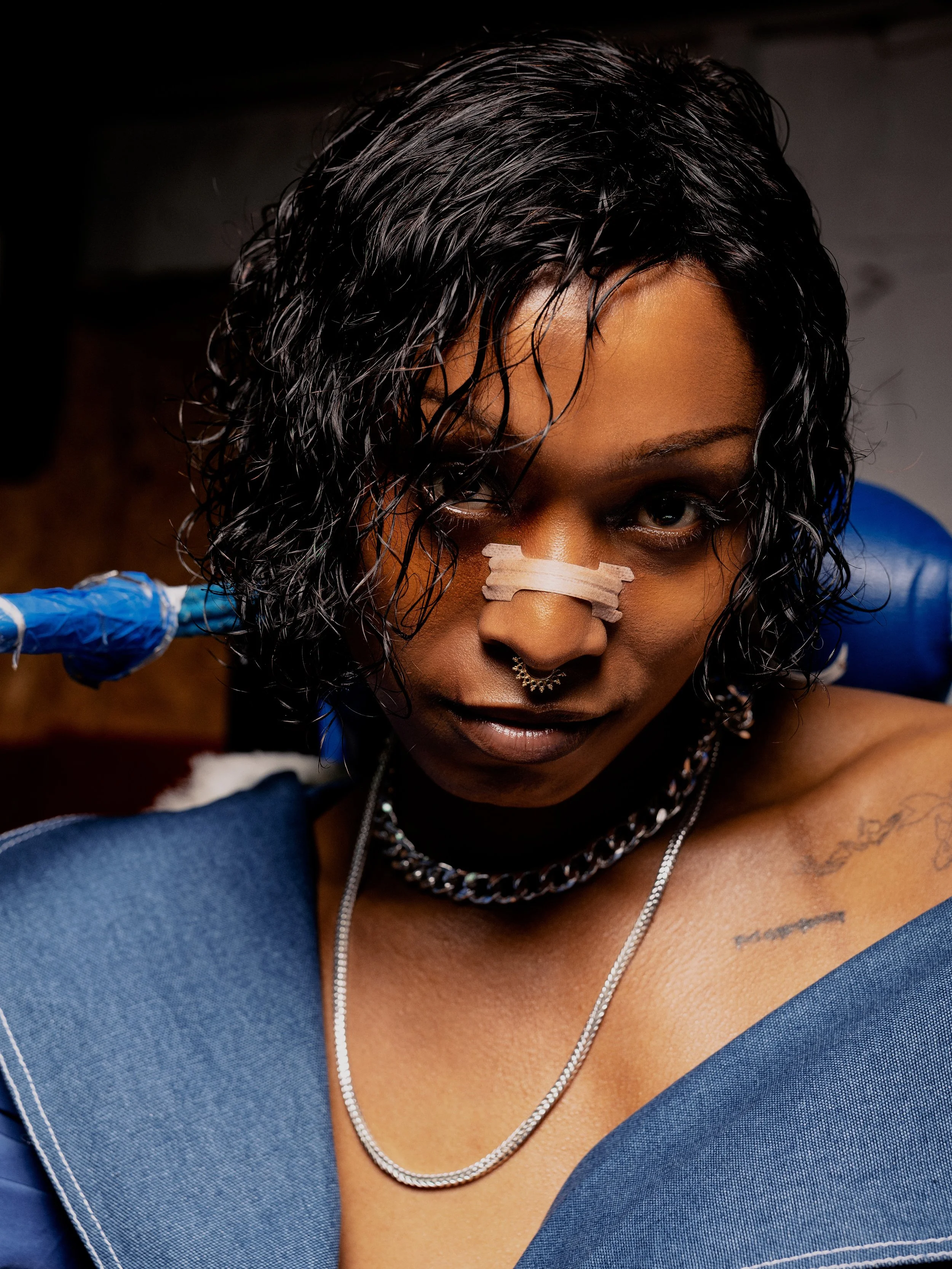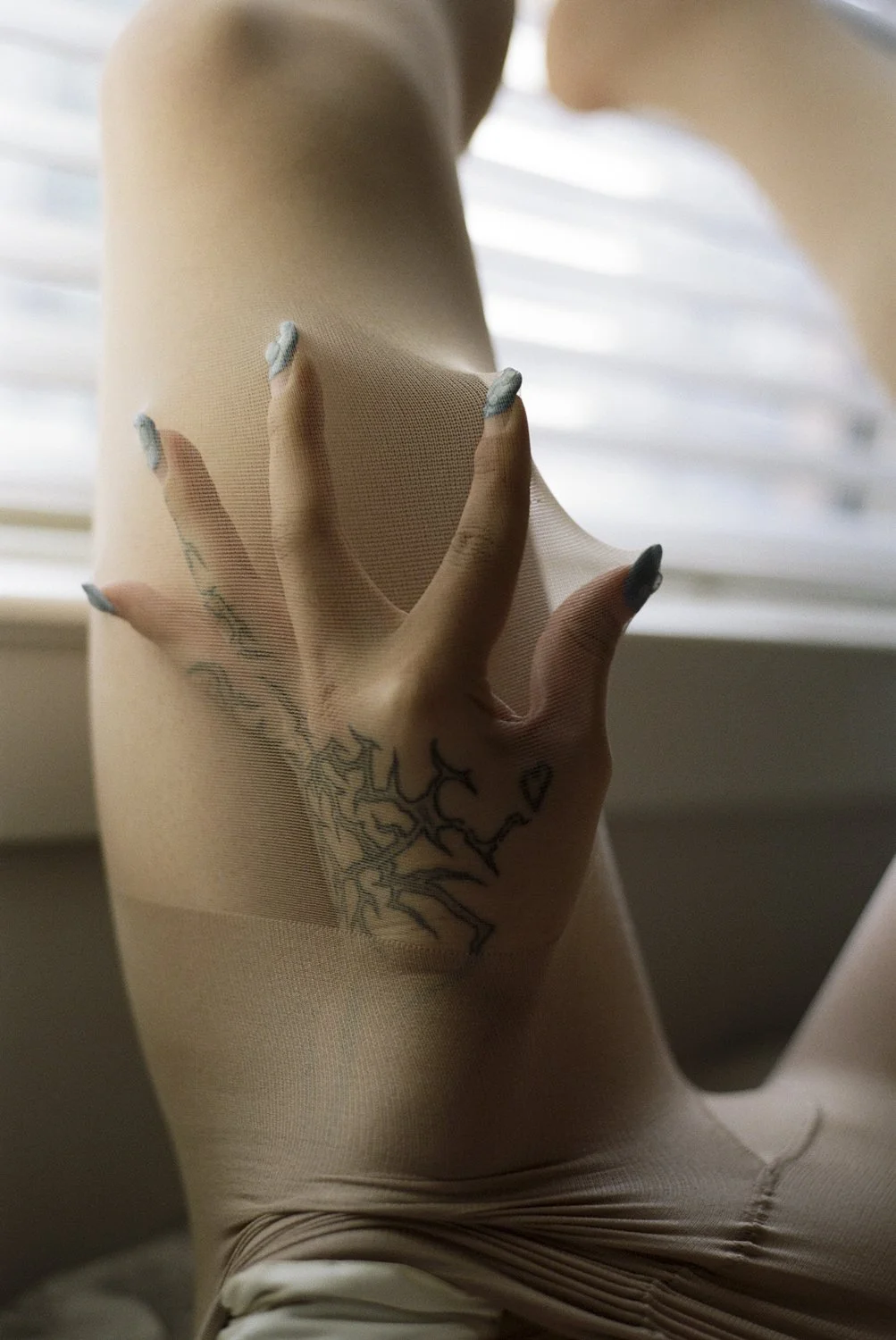Outside Art
Richie Culver first realised he understood art at an afterparty. It was at one of many post-rave afters that he was exposed to a book of Nan Goldin’s photographs. It wasn’t long after that Richie started producing his own art, visual and music. Today, Richie creates through sobriety, family life and therapy – his emotionally charged music takes on the form of existentialism. We caught up with him to discuss his current obsessions and his separation of art and music.
Interview Sufiyeh Hadian Photography Christian TrippeCan you tell us a bit about yourself and about your work?
Well, yeah, I'm a painter. I work in various mediums. And I also make music. Actually, I've been painting more recently.
Do you prefer painting rather than making music?
I guess they all have their place. When I'm not doing exhibitions, it’s usually music projects, so it moves from one to the other.
Makes sense, so what are you working on at the moment?
At the moment, I am doing a mix for Radio Alhara in Bethlehem, which needs to be in tomorrow. I also have an exhibition coming up in Vienna in October. And then Scream if you don't exist is coming out in November. So it's been a busy year.
Amazing. What are you most obsessed with?
That's a good question.
Yeah, If I'm totally honest, I’m addicted to my phone and it's sad. I'm very much aware that the whole world is. So, I'll try and have a phone-free weekend, where my partner has my phone and I get it back on a Monday morning. I have Saturday and Sunday just to completely focus on people and conversation. It’s an addiction for the whole world, but that doesn’t mean it is justified in my own behaviour.
Yeah, very much so, I get that as well.
It's not normal, I now realise it doesn't feel normal because, on a weekend when I don't have my phone, it takes me about 12 to 24 hours for my brain to finally calm down and for the high of the endorphins that I get from receiving an email or whatever, to calm down and then after 24 hours, I don't want my phone back. It's definitely an addiction.
“When I started getting paid for something that was a hobby for me, or something I enjoyed doing, it took me a long time for my brain to catch up that being in the studio is work.”
Richie Culver
Do you get this addiction feeling in a work capacity as well?
I think it's an interesting question. Because I used to always think of work (before working in a creative way), as this kind of thing that I couldn't stand going to, and I would do it and then get paid at the end of the week.
Then when I started getting paid for something that was a hobby for me, or something I enjoyed doing, it took me a long time for my brain to catch up that being in the studio is work. And now whenever I have my phone on me – it's work.
How did you make your hobby into a career? When did you start to enjoy work?
It was a slow, kind of gradual process. I started selling paintings, and then, as things picked up, continued to sell the next work, show in the next exhibit, then gradually stop the jobs that I was doing just for the money. This all happened over the past 10 years.
Do you remember the first time you were excited about exhibiting your work somewhere?
Absolutely. It was at the Tate Modern, in this exhibition for Outsider Artists. And because it was in such a grand place, I found myself saying out loud repeatedly that I exhibited in the Tate Modern. Even though it was just a minuscule little exhibition in the Turbine Hall for outsider artists, I kept saying it out loud because it didn’t feel real.
What does ‘Outsider Artists’ mean?
I mean, I guess we’ll have to google it; ‘outsider art is made by self-taught’. Okay, that was me, ‘or supposedly naive artists with typically little or no contact with the conventions of the art world, in many cases, their work is discovered after their deaths. Often the outside of artists illustrates extreme mental states, unconventional ideas and elaborate fantasy worlds.’
Wow, do you relate to that?
I guess, the self-taught part, definitely.
What made you start practising music?
The music actually came first, I remember being like 13 or 14 and listening to hardcore, jungle, rave and acid and I wanted some decks and I got obsessed with DJing. So that was my coming-of-age obsession. Definitely records, underground culture and going to town on a Saturday afternoon and spending what little money I had on records.
Then I guess going out on weekends and connecting to strangers and going to afterparties and educating myself in that way that was based on the people I would meet, finding out about art and painters and sculptural stuff and avant-garde music. It's always been there but I’ve calmed down as an adult so that I can navigate my spare time better and do things in a more thoughtful, productive manner.
“The older I got and once I eventually got sober and clean I realised (for me) that it was all a myth. I started to make the best work I had ever made – and I had my past as a source of material.”
Richie Culver
Do you feel being sober and living a more wholesome lifestyle has added to your musical ability?
Yeah, 100%. it's been a long time now. So I can't really imagine it any other way. It's not for everyone.
Do you feel like you romanticise your past? If so, how so? And if not, why not?
I had lived my whole life idolising the likes of Kurt Cobain – artists that didn’t live to tell the tale. I thought that self-destruction was such an important part of the creative process, because in the 90s it’s kind of all I saw. The older I got and once I eventually got sober and clean I realised (for me) that it was all a myth. I started to make the best work I had ever made – and I had my past as a source of material. If you look at the greatest albums ever made, or paintings for that matter, mind-altering substances were always involved. I think that myth is getting old now though. Younger people coming up don’t think that anymore. It’s boring and dated. The main problem now is screens and phone addiction. Which is definitely an issue of its own.
“I look at paintings I made three years ago and I cringe, but I'm aware in 13 years’ time, I will look back and think they’re okay. It's the same with the music.”
Richie Culver
What about looking/listening back to your old works and seeing it in a new light do you feel that it has changed a lot?
Yeah, these things kind of come in cycles, I look at paintings I made three years ago and I cringe, but I'm aware in 13 years’ time, I will look back and think they’re okay. It's the same with the music.
What are you most excited about in your upcoming works?
I'm really excited that I have a sound piece coming out on the 22nd on Drowned By Locals. This is probably one of my favourite labels. And we got chatting in the US and asked if I would like to release. So that's coming out on the 22nd. I'm really excited about 2024. I'll probably be releasing new music under my alias, which is Quiet Husband.
Have you always kept your music and your art separate?
My music is darker than my art I guess. It's always been my goal for them to sit harmoniously under one umbrella. But at the moment too many worlds are clashing too much. I've very much kept them separate. My paintings are almost meme-like, reactions and social commentary, whereas my music is autobiography.
“If you look at the greatest albums ever made, or paintings for that matter, mind-altering substances were always involved. I think that myth is getting old now though. Younger people coming up don’t think that anymore. It’s boring and dated.”
Richie Culver
Interview Sufiyeh Hadian
Photography Christian Trippe
